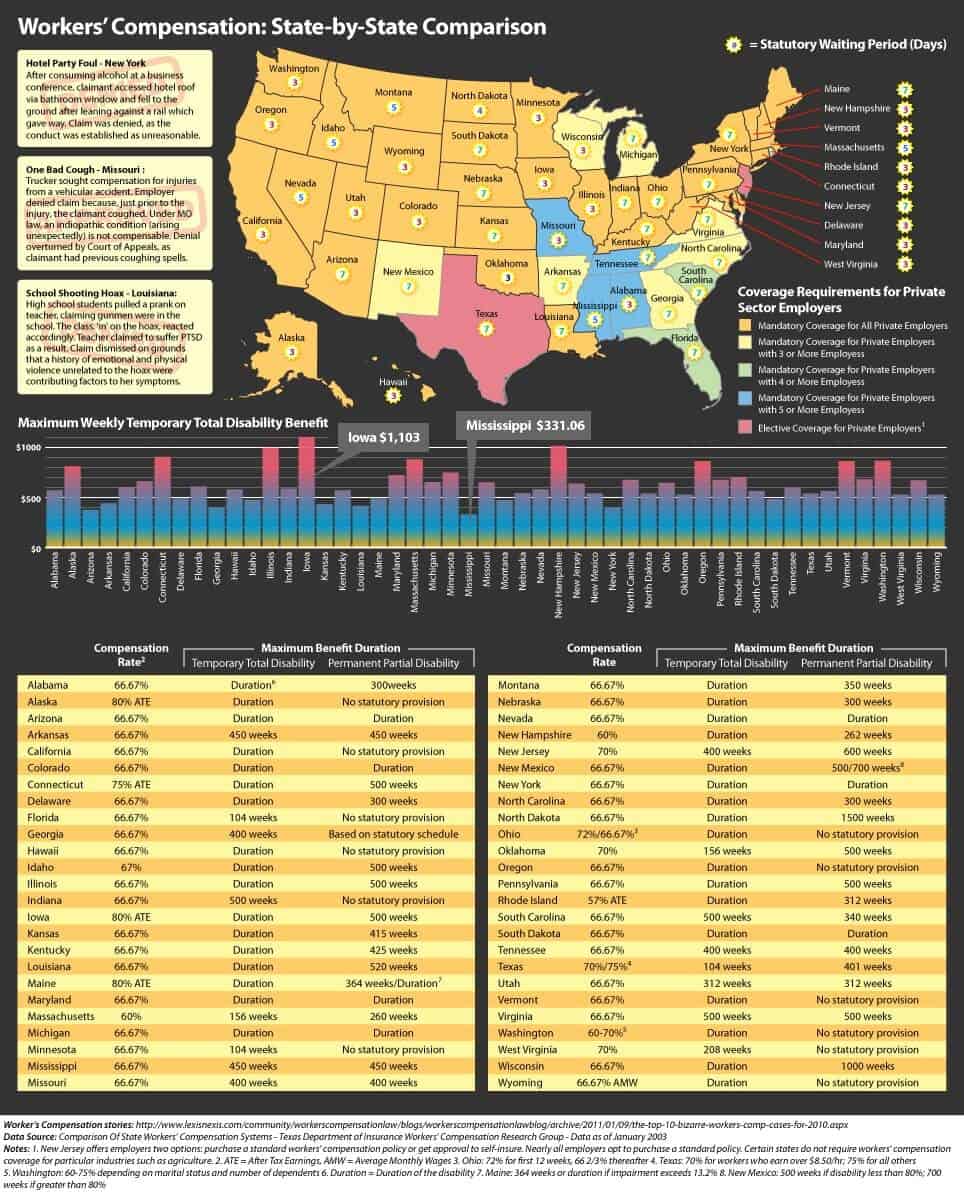5 Tips for Filing a Workers’ Comp Claim in Colorado
Each year, nearly 28,000 Colorado employees file a workers compensation claim to recover lost wages and medical costs associated with a workplace injury. Workers’ compensation is a type of insurance coverage employers are required to provide employees who are injured on the job or develop occupational diseases. To be covered by workers compensation, you must be an employee, and be accidentally injured on the job, or got sick from doing your job. This insurance pays for medical expenses and partial wage replacement during periods of temporary disability. The cost of workers’ compensation insurance is paid entirely by the employer and may not be deducted from an employee’s wages.
The goal of workers’ compensation is to make it possible, with the help of a qualified workers’ compensation attorney, for an injured employee to focus on getting necessary medical treatment and wage replacement. Without these laws, the injured party would most likely be forced to litigate his or her claim against an employer, thus delaying the medical process and deepening financial hardship.
Filing a workers’ compensation claim must be done quickly and the process can be confusing. If you are injured on the job, you should know that papers need to be filed correctly and within the right number of days to avoid denial of your claim.
Tip #1: Immediately notify your employer of your injury
In Colorado, you must notify your employer in writing within 4 working days of an injury, even if you have reported it verbally. If you do not report your injury to your employer in writing within 4 working days, you may be penalized and lose up to one days compensation for each days delay. If you are physically or mentally unable to file a written report within the specified time frame, it may be filed on your behalf by another person who has notice of your injury.
Tip #2: Seek treatment from a designated medical provider
If your injury is a life-threatening emergency, you’ll go where the ambulance takes you. In a nonemergency, the Colorado workers compensation law requires that you seek treatment from an employer-provided list of designated medical providers or your claim may be denied. Your employer must provide you with this written designated provider list within 7 business days following the date you reported your injury. While you can still choose your own healthcare provider, be warned that it may result in nonpayment of medical benefits, leaving you responsible for your own medical costs.
Tip #3: Get wise about legal marijuana and how it affects your claim
Although marijuana is now legal in Colorado for both medicinal and recreational use, the law still allows employers to enforce a drug-free workplace, which means that if its use contributed to your on-the-job injury, your claim could be denied, and your employment terminated. Moreover, since marijuana is still illegal on the federal level, doctors cannot prescribe it they can only recommend it. And because it must be filled at a dispensary, not a pharmacy, workers compensation insurers are not required to pay for marijuana as part of your injury treatment.
Tip #4: Avoid claim denials by providing detailed information
A claim may be denied because your employers insurance adjuster does not have complete and accurate information, so remember to be specific when describing your injury or illness. A claim may also be denied if the insurance adjuster believes the injury is not work related or believes that further investigation is necessary. An experienced workers compensation attorney can help you avoid claim denial by working with you to supply critical information throughout the claims process.
Tip #5: Minimize the risk of representing yourself
Did you know that in Colorado if you represent yourself without the aid of an experienced workers compensation lawyer you’re still held to the same standard as an attorney with knowledge of the law? Although the Colorado Division of Workers Compensation allows an injured worker to represent themselves as an Unrepresented Pro Se Claimant, it is important to understand that representing oneself in a legal proceeding without the aid of an attorney can be risky and confusing. What’s more, if you request an appeal on a denied claim, your employer will undoubtedly be represented by an attorney. The best way to avoid this unfair advantage is by working with an experienced attorney who is well-versed in Colorado workers compensation law and its complexities.






